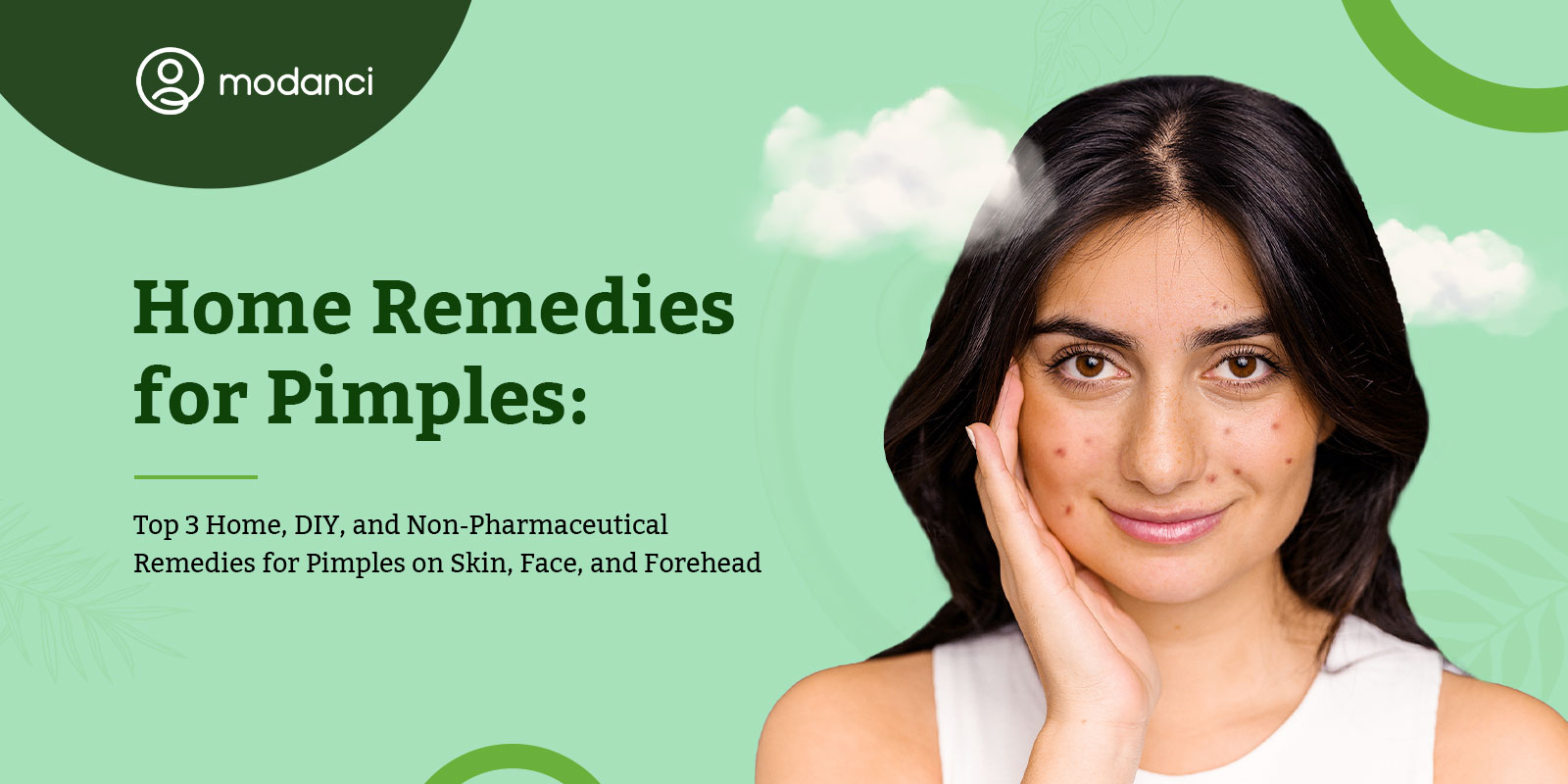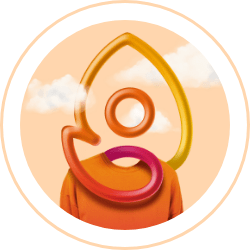What are Some Characteristics of Individuals Born in January?
People born in January are conceived in summer and have unique personality traits that make them stand out. Men are assertive, focused, and excellent planners, but their perfectionist nature can sometimes lead to stress-related health issues. Women are creative problem solvers with a strong work ethic and a passion for their interests. They, too, may experience stress-related health issues, but they can prevent them by taking care of themselves.
Overall, January-born individuals are driven, focused, and have an unwavering commitment to their work. They thrive in structured environments and have a warm nature that makes them great leaders. However, they need to manage stress and stay hydrated to maintain good health.
There is so much to know about the Prakruti of a January-born individua that will amaze you!
What are Pimples, and How Can They Differ for People Born in January?
Pimples are a common skin condition characterized by inflamed, red bumps on the skin. They occur when the ducts of sebaceous glands become clogged with oil and dead skin cells, which can lead to the growth of bacteria. Pimples are most commonly found on the face, chest, and back and are commonly treated with topical medications or prescription antibiotics.
It’s important to avoid picking at pimples, as this can lead to scarring and further inflammation.
Individuals born in the month of January were likely conceived during the summer, which can affect their bodily constitution or Prakruti.
January-born individuals tend to have a ksharadharmi prakruti, characterized by warmth and sensitivity to hormonal changes.
This warm nature of their body can make them more prone to developing pimples, particularly during hormonal fluctuations. Overall, by taking care of their bodily functions and being mindful of hormonal changes, individuals born in January can help maintain healthy skin and reduce the likelihood of developing pimples.
Here are some simple home remedies for pimples.
What are Home Remedies for Pimples?
To prevent the formation of pimples, individuals born in January need to maintain regularity in their bodily functions. This includes ensuring that their faeces, urine, periods, and sweat are regular and that toxins are eliminated from their body regularly.
Regular elimination of toxins can help prevent the buildup of harmful substances in the body that can contribute to forming pimples.
1. Home Remedies for Pimples Using Dry Fruits
For individuals born in January, starting the day with a simple morning ritual can help balance their warm bodily constitution. One such habit is eating dry anjeer, or figs, on an empty stomach. For preparation, the figs should be soaked in water or milk overnight to soften them. In the morning, chew the figs properly and eat on an empty stomach.
This morning ritual can be particularly beneficial for individuals with a high body warmth level. Eating two figs daily is the formula you can keep using for your whole lifetime. Figs are known to have cooling properties that can help balance the warmth in the body.
2. Home Remedies for Pimples Using Black Raisins
From morning to night, we spend almost 16 hours awake. During this time, it’s essential to prioritize a healthy diet that supports our bodily constitution. For individuals born in January, a simple morning-to-night ritual is to eat ten black raisins every two hours. This daily habit can be adopted throughout one’s lifetime.
Black manuka raisins are naturally purgative in nature that can help have clean stools and eliminate toxins from the body. By promoting regular bowel movements, black manuka raisins can prevent the buildup of harmful substances in the body.
3. Home Remedies for Pimples Using (Coriander Powder) Dhania-Infused Water
Drinking two litres of dhania-infused water daily can promote good urine flow and maintain optimal health. Dhania has antioxidant properties that promote healthy skin. It is essential for individuals who work under the sun to monitor their urine to ensure that it remains clear.
If the urine appears yellow, it indicates that the body needs more water and should increase the intake of Dhania water beyond the recommended two litres.
Dhania-infused water is easy to prepare at home. Mix five tablespoons of dhania powder for every litre of water and allow it to rest.
The result is an infused medicated water that can be consumed throughout the day to promote good urine flow and overall health.
What are DIY Remedies for Pimples?
DIY Ayurvedic remedies refer to natural remedies that can be made at home using simple ingredients and techniques based on the principles of Ayurveda. Ayurveda is a traditional system of medicine from India that emphasizes a holistic approach to health and wellness.
DIY Remedies for Pimples by Following an Eight-Day Regime
Following an eight-day regime can be a great way to support overall health and well-being. REMEMBER – This regime is to be done once in four months.
For the first seven days, one can incorporate a morning ritual of consuming a mixture of one spoon of haldi (turmeric) and one spoon of dhania (coriander) powder in water. This mixture can be consumed on an empty stomach in the morning to help improve digestion, reduce inflammation, and support overall health.
On the eighth day, a holiday, one can take 50ml of pure castor oil with warm water, lime water, or Suntha Kadha. Castor oil is known for its purgative properties. It can help cleanse the digestive system and eliminate toxins from the body. This should be done after consultation with the nearest Ayurvedic physician.
What are Some Measures of Adravya Chikitsa (Non-Pharmaceutical Treatments) for Treating Pimples?
Adravya Chikitsa is a term used in Ayurveda, the traditional system of medicine in India, which refers to treating diseases without using drugs or medications. In other words, it is a form of treatment that does not involve the administration of any substance or material.
According to Ayurveda, the body has the power to heal itself, and the physician’s role is to facilitate this natural healing process. Adravya Chikitsa involves using various non-material or subtle therapies, such as meditation, yoga, pranayama (breathing exercises), and spiritual practices, to help the body heal itself.
1. Adravya Chikitsa for Pimples by Following the Correct Diet
People born in January should avoid consuming spicy and oily foods during the day. Instead, it is recommended to consume Moog-based or Pitta-balancing eatables. Moog-based eatables, such as Moog dal or sprouted Moog beans, are rich in protein and fibre and are known for their Pitta-balancing properties.
Pitta-balancing foods help regulate body temperature and promote optimal digestion, making them an excellent choice for individuals with a warm body and those prone to pimples.
2. Adravya Chikitsa for Pimples With Mindful Techniques
It is important to note that Ushnata, or body heat, can increase not just due to external factors like diet and environment but also to internal factors such as thoughts and personality traits. Anger issues, in particular, can lead to increased body heat and result in pimple growth.
Individuals who tend to be perfectionists or have a lot of stress and anxiety can also experience increased body heat, contributing to pimples. It is essential to be mindful of one’s thoughts and emotions and work towards managing stress and anxiety levels to promote optimal health.
Keeping one’s thoughts in the present tense and avoiding dwelling on the past or worrying about the future can also be beneficial in reducing stress and promoting overall health.
Conclusion
By reducing Ushnata or body heat, individuals born in January can help to reduce pimples. Pimples are often associated with increased body heat and hormonal changes, which are more prevalent in individuals with a warm body, like those born in January.
Following a regimen that includes practices to reduce body heat, such as consuming cooling foods and beverages, managing stress and anger, and practising mindfulness, can help to lessen the occurrence of pimples. Additionally, incorporating pitta-balancing foods and avoiding spicy and oily foods can further support healthy, clear skin.
FAQs
1. What are some natural remedies for treating pimples?
There are several natural remedies for treating pimples based on the principles of Ayurveda:
Eating dry anjeer (figs) on an empty stomach in the morning helps balance the warmth in the body.
Eating ten black manuka raisins every two hours during the day helps eliminate toxins from the body and promote regular bowel movements.
Drink two litres of dhania (coriander) water daily to promote good urine flow and overall health.
Following an eight-day regime that includes consuming a mixture of haldi (turmeric) and dhania (coriander) powder in water in the morning for the first seven days, taking 50ml of pure castor oil (consume after taking the advice of the nearest Ayurvedic physician) on the eighth day to help cleanse the digestive system, and eliminating toxins from the body.
2. How do I know which remedies are more effective for people born in January?
The solutions above will work better if you use them for a longer time. These solutions were chosen by experienced health experts called Vaidyas and are explicitly made for people born in January. They have been tested and are based on many years of experience.
3. How often should I use DIY remedies for pimples?
The frequency of DIY remedies for pimples may depend on the remedy you’re using. It’s important to pay attention to your skin’s reaction to the remedy and adjust the frequency accordingly.
For example- Eating two figs every day or ten black raisins is something you can practice every day for your whole lifetime.
4. Are there any non-pharmaceutical treatments that can be used to get rid of pimples?
It is recommended to consume Moog-based or Pitta-balancing eatables. Moog-based eatables, such as Moog dal or sprouted Moog beans, are rich in protein and fibre and are known for their pitta-balancing properties.
It is important to note that Ushnata, or body heat, can increase due to external factors like diet and environment and internal factors such as thoughts and personality traits. Anger issues, in particular, can lead to increased body heat and result in pimple growth. One has to be aware of these thoughts.
5. How long does it typically take for home remedies to work on pimples?
The time it takes for home remedies to work on pimples can vary depending on the severity of the acne, the type of remedy used, and the individual’s skin type. Some people may see results within a few days, while others may take several weeks to see a noticeable improvement.
6. What are the best ingredients to look for in home remedies for pimples?
For individuals born in January, starting the day with a simple morning ritual can help balance their warm bodily constitution. One such habit is eating dry anjeer, or figs, on an empty stomach. For preparation, soak the figs in water or milk overnight to soften them. The figs should be bitten properly and eaten on an empty stomach in the morning.
Black manuka raisins are naturally purgative in nature that can help have clean stools and eliminate toxins from the body. By promoting regular bowel movements, black manuka raisins can prevent the buildup of harmful substances in the body that can contribute to forming pimples.




